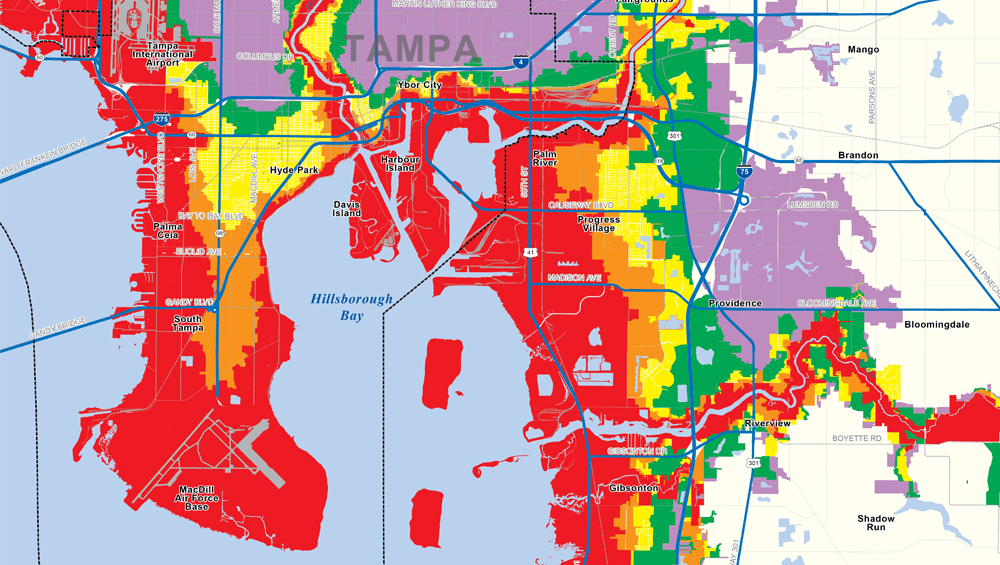Airport Operations During Hurricane Milton: What Travelers Need to Know
Hurricane season can be a tumultuous time for travelers, especially when severe weather events like Hurricane Milton begin to take shape. As storm systems approach, especially in hurricane-prone areas like Florida, it is essential to stay informed about airport operations. In this blog post, we will discuss how major airports in Florida, including Miami International Airport (MIA), Orlando International Airport (MCO), Fort Lauderdale-Hollywood International Airport (FLL), Sarasota Airport (SRQ), and others, manage operations during hurricanes. Whether you’re departing, arriving, or connecting through these airports, here’s what you need to know about navigating travel during a hurricane.
 Understanding Hurricane Milton
Understanding Hurricane Milton
Hurricane Milton, like its predecessors, is more than just a meteorological phenomenon. It can bring strong winds, heavy rainfall, and hazardous conditions that impact not only the local communities but also business operations, particularly at major transportation hubs. With satellites tracking the storm's path and intensities, airports continuously monitor weather updates to determine the safest course of action in response to the impending hurricane.
Airport Operation Protocols During Hurricanes
1. Closure Policies:
Airports have clear protocols for closure during severe weather. For example, Miami International Airport (MIA) and Orlando International Airport (MCO) may close if winds exceed operational limits, typically around 40-50 knots for commercial aircraft. Airport authorities will notify the public well in advance of any closures, so it’s crucial for travelers to stay updated through official airport websites, social media, and local news channels.
2. Flight Cancellations and Delays:
Airlines often preemptively cancel flights in anticipation of severe weather. As soon as Hurricane Milton is predicted to impact the area, travelers should be vigilant about checking their airlines for status updates. For instance, Fort Lauderdale-Hollywood International Airport (FLL), along with other nearby airports, may experience significant flight cancellations. Airlines typically provide options for rebooking or refunds and will often waive cancellation fees in such situations.
3. Safety Protocols:
In the face of imminent danger, airport personnel prioritize passenger safety. For example, during Hurricane Milton, Miami International Airport will mobilize emergency response teams, ensuring that all travelers on the premises are moved to safer areas, should the situation escalate. This reallocation includes securing airport assets and providing crucial information to passengers regarding their safe exit from the facility.
Practical Tips for Travelers: Before and During Hurricane Milton
1. Stay Informed:
Keep a close watch on updates regarding Hurricane Milton through the National Hurricane Center and local weather stations. Airport websites and social media channels are also excellent resources for real-time updates on flight statuses.
2. Communicate with Your Airline:
If your flight is approaching, make sure to connect with your airline directly—either online or via the customer service hotline. Airlines like American Airlines, Delta, and United typically lay out their hurricane policies ahead of time, allowing travelers to understand what to expect.
3. Plan for Alternative Arrangements:
Given that popular airports like Sarasota Airport (SRQ) or Port Charlotte may face additional strain, consider alternative airports or modes of transportation. For travelers aiming for central Florida, Orlando International Airport (MCO) is a popular choice, while Miami International Airport (MIA) remains a hub for international flights.
4. Pack Supplies:
If you must travel during an impending hurricane, ensure you have essential supplies such as bottled water, snacks, necessary medications, and portable chargers. This way, you will be prepared should you face extended delays.
5. Expect Potential Changes:
Be mentally prepared for disruptions. Even if you have a flight booked, unforeseen changes can happen. Flexibility is crucial. Having a flexible travel plan may be the most prudent approach to handle any scenarios presented by Hurricane Milton.
Airport Recovery After the Storm
Once Hurricane Milton passes, airports in affected areas will undergo assessments to ensure that facilities are safe for travelers. For instance, staff will inspect runways, terminals, and other critical areas before declaring operations as normal. Keep in mind that initial flights may still experience delays as the airport ramps up services in the aftermath of the storm.
As was the case with previous hurricanes, employees at Miami International Airport, Orlando International Airport, and Fort Lauderdale Airport often work around the clock to reestablish regular flight operations. The recovery phase includes routing flights, accommodating stranded passengers, and ensuring that both security and safety protocols are thoroughly followed.
Conclusion
Traveling during hurricane season, especially with the impending impact of Hurricane Milton, can be challenging. However, by understanding airport operations and adhering to proactive measures, travelers can navigate these disruptions with greater ease. Remember, the goal is to ensure your safety and the safety of others. Always keep a close watch on the storm’s trajectory and maintain open lines of communication with your airline. By staying informed and prepared, you can minimize the impact of Hurricane Milton on your travel plans while ensuring a safer journey through Florida's major airports. Safe travels!